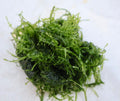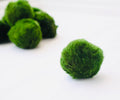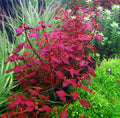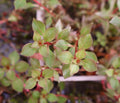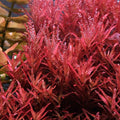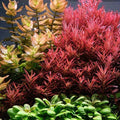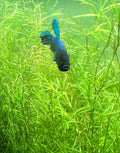The Benefits of Floating Plants in a Guppy Aquarium
Besides their nice look, floating plants are very beneficial in guppy aquariums.
They will help keep the water clean, and their roots will provide hiding places for guppy fry. In this article, I will highlight some of the benefits of having floating plants in your guppy fish tank. We'll also help you choose the right floating plant for your guppies.
Benefits of Floating Plants in Your Aquarium
Floating plants can give lots of benefits to an aquarium. Here are some of the main benefits you should consider keeping floating plants in your guppy fish tank.
Low Maintenance and Easy to Grow
I would not say that all floating plants are low maintenance, but there are some that do not require much attention. For example, duckweed is not low maintenance because it grows really fast and needs to be removed from the tank; otherwise, it will suffocate the aquarium.
Floating plants are very easy to grow. Most floating plants will not require fertilizers at all. They will consume the nutrients from the water column and will extract nitrates too.
Floating plants are very hardy and excellent for beginners who have no experience with aquarium plants.
Lots of Cover for Guppy Fry
Most floating plants grow huge root systems underwater. Their roots are fluffy. This is a perfect place for small guppy fry to hide from their parents. These roots will also give home to microfauna such as seed shrimps, copepods, and other small creatures—great sources of food for small fry. So the roots of floating plants will not only provide cover but also food for the guppy fry.
Helps Clean the Water
Floating plants grow really fast. In order to grow, they use up a lot of nutrients from the water. Floating plants are able to remove the nitrates, which are the final waste product of fish poop and decomposing organic matter in the aquarium. Nitrate in low quantities is harmless for the fish; however, in larger quantities, it can kill your fish. Some fish keepers use floating plants to reduce nitrate levels and skip water changes. Though this might sound very tempting, I don't recommend skipping on water changes.
Combat Algae without Chemicals
Lots of beginners struggle with algae. Most of them use powerful chemicals to combat algae. This is not a long-term solution to get rid of algae. Chemicals can kill off algae quickly, but they are not good for fish and plants. Algae need light and nutrients to develop and grow in your aquarium.
Floating plants are the perfect solution to combat algae in aquariums for two reasons:
-
Provide shade so the tank will get less light.
-
Remove nitrates and excess nutrients from the water.
So floating plants basically steal the light and the nutrients from the algae. This process to combat algae is slower, but once the floating plants are established, algae will not be able to grow anymore.
Good Food Source
As mentioned before, the roots of the floating plants are great for microfauna to develop, but this is not the only food source these plants can provide.
For instance, duckweed, the fastest-growing floating plant, is rich in vitamins A and B and has a 35–43% protein content and up to 30% fiber.
You can collect duckweed and prepare food for your guppies.
-
Blend up duckweed with other foods such as vegetables or raw shrimp.
-
Dry out the blend first.
-
After the blend is dry, crush it into small flakes—perfect to feed your guppies.
Duckweed can also be fed to larger fish directly without blending it.
Goldfish and cichlids will consume duckweed as it is.
Provides a Natural Look
Most guppy breeders like to keep their tank as clean as possible. They avoid using substrate and plants in their tanks. In my opinion, this is a bad practice.
I understand that it's easier to control water parameters without having substrate and live plants. But at the end of the day, we want to breed and raise beautiful fish—providing them with the best habitat we can.
Floating plants are just a great choice if you want to provide a natural look to your aquarium. As mentioned before, they are easy plants, do not require much maintenance, and are really good to keep stable water parameters.



